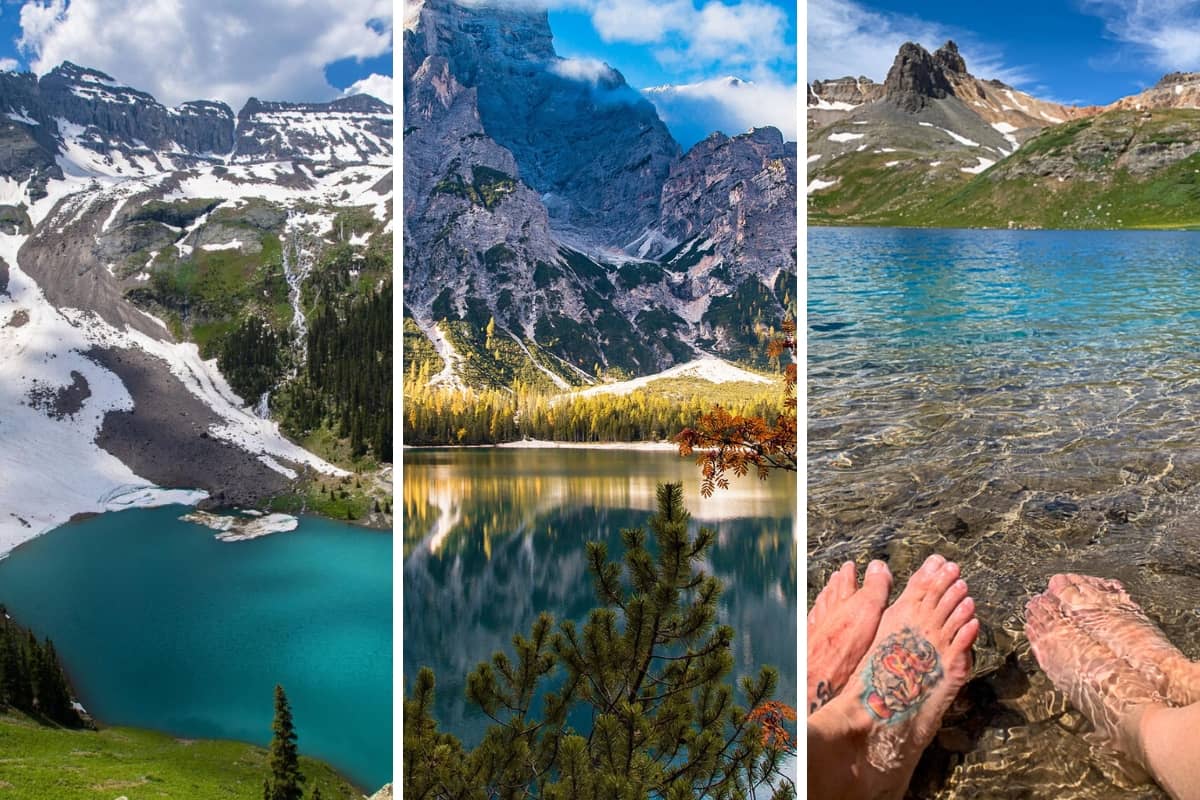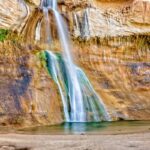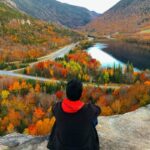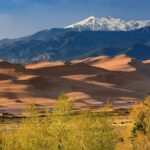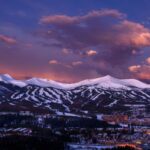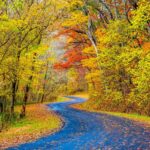Colorado is home to many alpine lakes and you get a variety of trailhead options for lake views. These are some of the best day hikes in Alaska that lead to a crystal-clear lake surrounded by spectacular mountain scenery, so there is something for everyone. Since picking just a few to include is tough, here are some of the top alpine lake hikes in Colorado that are great for hikers of all levels.
I’ve been hiking the trails of Colorado for 13+ years and have hiked over a thousand miles! These are the items we have found through years of trial and error, passion for each adventure etc.
Must-Try Lake Hikes in Colorado
We highlight the best lake hikes in Colorado, including all of the details you need to plan your trip. Here’s what you’ll find:
- Best alpine lake hikes, with length to go by trailhead Trail difficulty elevation gain Detailed Note.
- Colorado Hiking Advice From An Insider.
- Top Dog Friendly Hikes.
Here we present you with a carefully crafted list of treks that are best suited to different skill levels- so that all can relish in the tranquility and beauty offered by Colorado alpine lakes.
What Defines an Alpine Lake?
A lake above an altitude of 10,000 feet. Since snowmelt from the moutains go directly to these high elvation bodies of water, they are clearer than those found at lower elevations. Alpine lakes like this one have glacial origins with cold, pure waters.
How Many Alpine Lakes Exist in Colorado?
It can be hard to believe, but Colorado hosts over 2,000 alpine lakes — so many that it becomes almost impossible to count. Most of them are only reachable by foot, however some can be arrived to the auto side. Lake Five is known for a variety of landscapes, all left with undisturbed clear waters that very well reflect the dramatic surrounding mountain terrain.
Accessible Lake Hikes in Colorado
Alpine Lake Hikes Colorado Want to take only moderate difficulty alpine lake hikes? Think again! Most of the best lakeside spots can be accessed by people with minimal to no hiking experience. Designed for beginners, simple and short trails allow you to discover breathtaking views even if you are new in trekking.
1., 2., 3. Nymph, Dream, Emerald, and Lake Haiyaha in Rocky Mountain National Park
For those looking for several alpine lakes to explore and in a single hike, this is the one. From the Bear Lake parking lot, you’ll take a trail that brings you to four beautiful lakes. If you are particularly tough and still have a bit energy left on the way out, take an extra detour at Dream Lake to visit Emerald Lake – it may sound worlds away from crowds of tourists but in fact this trail is there just for people like yourself so no need to worry about your respiratory under extreme human pressure. The Lake Haiyaha hike is a CNOC family favorite and perfect for beginner hikers or easy day trip with kids, can be done 365 days per year as well This is also one of the best winter hikes in Colorado.
- Distance: 3.6 miles
- Elevation Gain: 846 feet
- Difficulty: Easy
Important Considerations and Local Advice
- Restrictions: No dogs allowed.
- Winter Note: In winter, watch for avalanche terrain and take corresponding detours for safety.
Pro Tip: Bear Lake parking lot fills up fast, even on weekdays. Plan to show up early or be prepared to take a shuttle.
4. Wellington Lake in the Lost Creek Wilderness
While Wellington Lake is not your typical alpine lake hike, it still makes for an amazing recreational area — especially in early season before the higher elevation lakes have thawed. Here, secluded nooks abound for leisurely fishing and swimming as well as camping; short easy trails also make it good family territory.
- Distance: Varies, with short hikes on the property; the loop around the lake is approximately three miles.
- Elevation Gain: Minimal.
- Difficulty: Easy
Important Considerations and Local Advice
- Fees: There are day-use and camping fees required to access the area.
- Family-Friendly: This location is perfect for a family outing, offering a range of activities for all ages.
5. Sprague Lake in Rocky Mountain National Park
Sprague Lake is one of the most accessible alpine lakes in Colorado, featuring a wheelchair-friendly trail that makes it a great option for those who might need a bit more encouragement to venture outdoors. Despite its ease of access, Sprague Lake is also one of the premier spots to catch a breathtaking sunrise in Rocky Mountain National Park.
- Distance: 0.8 miles
- Elevation Gain: 32 feet
- Difficulty: Easy, with accessibility ramps
Important Considerations and Local Advice
- Restrictions: No dogs allowed.
- Local Tip: Visit at sunrise to experience stunning views as the morning light reflects off the tranquil lake.
6. St. Mary’s Glacier and Lake in Arapaho National Forest
One of the most accessible alpine lakes in Colorado is just an hour from Denver atop Saint Marys Glacier and it’s year-round snow. The two-mile trail guides you to the base of St. Mary’s Glacier (which is a year-round snowfield rather than an actual glacier) and features an absolutely beautiful alpine lake that is definitely worthy as pay-off for your 900-foot climb on this outing.
For the more adventurous types, you can keep going up the snowfield (bring some traction devices and maybe even a hiking pole for extra security).
- Distance: 1.9 miles
- Elevation Gain: 807 feet
- Difficulty: Easy
Important Considerations and Local Advice
- Parking Fees: Both parking lots for St. Mary’s are $20.
- Local Insight: This one is pretty under the radar but with parking prices continuing to rise, it’s certainly not a cheap day out. But it is a great place to train for mountaineering or have some summer skiing.
7. Maroon Lake Near Aspen
In my eyes there’s few places that capture the essence of Colorado as much. Usually when I am there, it is to photograph the Maroon Bells reflecting in their glassy water. This area is well-touristed as a result though it’s rightfully so due to the beautiful scenery.
- Distance: 1.9 miles
- Elevation Gain: 160 feet
- Difficulty: Easy
Important Considerations and Local Advice
- Year-Round Appeal: Maroon Lake is popular in any season but most peaceful during the winter period.
- Restrictions: Please be respectful of the markers and follow all signs. Dogs are not allowed here.
8. Crystal Lake in White River National Forest
There are a handful of select public uses open, such as Crystal Lake that is near the town of Breckenridge and provides glorious views in an uncrowded setting. This hike gives you choices based on where you start. Round trip length: 8 miles from the lower trailhead with some road walking. Alternatively, if you drive a high-clearance vehicle you can jump up to the upper lot and enjoy an easy 4-mile round trip.
- Distance: Varies between 8 and 4 miles round trip
- Elevation Gain: Up to 2,568 feet, significantly less if starting from the Wheeler Trail
- Difficulty: Ranges from moderate to easy, depending on your chosen route
Important Considerations and Local Advice
- Trail Conditions: The road to the upper lot is a true Jeep trail, requiring a high-clearance vehicle.
- Local Insight: You’ll also be near some of the best free camping around Denver if you’re in for an extended road-trip.
- Dog-Friendly: Also, trail other alpine mountain treks are not so pet-friendly that is the purpose this one makes a good selection to carry your dog.
9. Lake Isabelle, Indian Peaks Wilderness
If you happen to be looking for high-altitude hiking experiences while the lakes of the world are under snow, this winter stroll in Indian Peaks Wilderness near Brainard Read More In the summer it is an easy, scenic hike but will increase in milage during winter months creating a difficult and challenging adventure.
Begin your hike at Brainard Lake, then follow the trail up a valley to Lake Isabelle and it’s views of the permanent snowfield called Isabelle Glacier.
- Distance: 4.4 miles in summer, 11 miles in winter
- Elevation Gain: 448 feet in summer, 1,030 feet in winter
- Difficulty: Easy in summer (moderate in winter)
Important Considerations and Local Advice
- Fees and Access: Fees are charged in the summer at Brainard Lake Recreation Area. The road is short though so if it’s winter and there isn’t a gate, the 500 yards from highway to trailhead does not add much mileage compared to summer.
- Seasonal Tips: Because there have been changes in the area recently, it is always wise to check with Forest Service before your trip for up-to-date information.
10. Silver Dollar Lake in the Arapaho National Forest
This is another great hike near Georgetown and a family favorite as it’s only moderately difficult making the reward even more so (great views). A charming adventure with beautiful views, this trail embodies the typical Colorado Rocky Mountain vibe.
Just to push it a wee bit further, you get not just Silver Dollar Lake but another lake on the same hike. The wildflowers make it even more beautiful in the summer.
- Distance: 3.9 miles
- Elevation Gain: 1,062 feet
- Difficulty: Easy to moderate
Important Considerations and Local Advice
- Access Notes: Occasionally, the road leading to the trailhead is closed, which may add about a mile each way to your hike. Despite this, it’s a gentle trek with classic views, making it well worth the effort if you’re in the area.
11. Jewel Lake in State Forest State Park
The winter version of the yurt is hosting Jewel Lake, three miles shoe in on top of Junction Guard Station – offering one the most memorable weekend getaways from Denver for those who love Nordic pursuits.
The trail turns into a 4×4 road in the summer and you can hike it down to a parking area. That leads you about 2 miles to the lake.
- Distance: 4 miles in summer, 8 miles in winter
- Elevation Gain: 1,614 feet in summer, variable to the lake
- Difficulty: Easy to moderate
Important Considerations and Local Advice
- Trail Accuracy: Even though AllTrails has a map showing the many, however not with Hipcamp; distance still somewhat off.
- Park Fees and Restrictions: Enter State Forest State Park for entrance fee. Also no dog in yurt during winter.
12. Alta Lakes in Judy Long Memorial Park
The Alta Lakes Trail provides a Lake Creek Valley alternative to the more traditional Alpine lakes hike. This one is a beginners adventure that follow an easy off-road driving trail or it can be hiked to the eerie yet interesting Alta Ghost Town. A hike full of lake views and the mystery of an abandoned mining town.
- Distance: 10.2 miles
- Elevation Gain: 2,014 feet
- Difficulty: Moderate
Important Considerations and Local Advice
- Trail Usage: This is an OHV trail, but it’s also open to hikers. They are on the lookout for vehicles too, so take their side when needed.
- Dog-Friendly: Dogs are allowed on these trails so your furry friend can enjoy the trek.
13. Lake of the Clouds in the Sangre de Cristo Wilderness
Alpine Lakes Sangre de Cristo Mountains — Southern Colorado The alpine lakes in the mucho-undersung southern few thousand of the Sangres are a tranquil solace from the busier trails closer to Denver. The walk to the Lake of the Clouds is worth it — this utopian stillness and beautiful views provide respite for those who want wide open space.
- Distance: 10.6 miles
- Elevation Gain: 2,578 feet
- Difficulty: Moderate
Important Considerations and Local Advice
- Access Requirements: A high-clearance vehicle is recommended to reach the trailhead.
- Dog-Friendly: This trail is open to dogs, so you can bring your canine companion along for the adventure.
14. Hanging Lake in White River National Forest
Hanging Lake is a gem among standout lake hikes in Colorado. While this lake is one of the most visited tourist regions in Utah, and escape from humanity can be hard to do here even in off-season, it’s beauty makes it not too bad a place for dipping your feet into. The only thing to make sure you do is get your permits and that parking fills up fast.
- Distance: 3 miles
- Elevation Gain: 1,135 feet
- Difficulty: Moderate
Important Considerations and Local Advice
- Crowd Management: If you want a little peace and quiet, try catching sunrise. That said, expect some companionship no matter the hour.
- Permits and Restrictions: Bring cash to pay your access, permit and shuttle fees. Keep in mind, however, that swimming or clibing on the logs is not allowed.
- Local Tip: Hanging Lake has been closed at various points throughout 2021 to allow for trail maintenance following landslides. Be sure to check the permit website for current information before scheduling your trip!
15. Loch Vale in Rocky Mountain National Park
If that Sky Pond hike is a bit much, Loch Vale offers the same spectacular views at lower elevations. This trail is one of the most rewarding hikes in Rocky Mountain National Park, and has some of my favorite alpine lake views without having to do all that difficult elevation gain.
This moderate hike is perfect for anyone wanting to spend some time by an alpine lake without having to work too hard. And make sure to take a camera with you along with some snacks for the road!
- Distance: 5.4 miles
- Elevation Gain: 1,072 feet
- Difficulty: Moderate
Important Considerations and Local Advice
- Restrictions: No dogs are allowed on this trail, so plan accordingly.
16. South Colony Lakes in the San Isabel National Forest
The trek to South Colony Lakes provides a front-row seat of several Colorado 14ers. Alpine cirque along the trail that provides panoramic views of Kit Carson, The Crestones and Humboldt Peak. For those looking for an extra challenge, feel free to try and bag one of these peaks with a summit.
- Distance: 6.8 miles
- Elevation Gain: 1,548 feet
- Difficulty: Moderate
Important Considerations and Local Advice
- Camping Option: Many 14er enthusiasts choose to camp overnight at South Colony Lakes before attempting their summit. Even if you’re not planning to climb, the hike is well worth the trip.
- Access Note: The hike can be shortened if you’re able to navigate the rough 4-wheel drive road leading up to the trailhead.
17. Mohawk Lakes in Arapaho National Forest
Sitting in the valley below Crystal Lake, Mohawk Lakes are another set of stunning alpine lakes to add to your list while hiking around Colorado. The lakes offer multiple options for backcountry camping, or making attempts at nearby summits such as Father Dyer Mountain.
- Distance: 8.6 miles from the lower lot; starting from the upper lot reduces the distance by about a mile each way.
- Elevation Gain: 2,129 feet from the lower lot.
- Difficulty: Moderate
Important Considerations and Local Advice
- Dog-Friendly: Dogs allowed in the area, a welll suited place for people (dog owners) that like to hike with their dog.
- Hiking Opportunities: There are a ton of accessible and gorgeous 13ers in the area for those who want to go beyond the lakes.
18. Windsor Lake in Mount Massive Wilderness
If you want something a little shorter and steeper that ends with amazing views, try Windsor Lake near Leadville. During this hike, you will be rewarded fivefold with views of Mount Massive as well many more taller peaks in the Sawatch Range that are greater than 14ers.
- Distance: 2.8 miles
- Elevation Gain: 885 feet
- Difficulty: Moderate to difficult
Important Considerations and Local Advice
- Dog-Friendly: You can bring your dog along on this trail. Good News for Dog owners.
- Winter Access: In the winter, this road is closed and ungroomed adding an extra 3 or so miles each way to this hike. Make sure to check current road conditions in your area before venturing outside.
19. Pacific Tarn in the Tenmile Range
The highest alpine lake in the United States, perched at 13,420 feet (4092 m) Pacific Tarn offers a secluded hike that few know about. One of the lesser-known trails, it is a gem with striking wild flower views.
You should have great views of a good swath of the Tenmile Range including Pacific Peak, Atlantic Peak and Crystal peak — all four excellent 13ers for those in search of more peaks to bag.
- Distance: 6.5 miles
- Elevation Gain: 2,362 feet
- Difficulty: Moderate to difficult
Important Considerations and Local Advice
- Exploration Opportunities: The area surrounding Pacific Tarn is dotted with smaller lakes and scenic spots, providing plenty of opportunities for further exploration.
20. Mirror Lake in Indian Peaks Wilderness
As far as Colorado alpine lakes go, Mirror Lake is truly a hidden gem and an amazing hike to experience within your lifetime. Close to Denver, this is a great day trip hike. The massive mountains flanking the lake appear to float without anchor, and if you get there early enough – in autumn or late spring before boats cluttering its proximity drown out serene waters with humanity — maybe a mirror-perfect reflection of Lone Eagle Peak (arguably Colorado’s most picturesque mountain) will grace your vision.
You can handle this hike as a tougher 15-mile day trip that has moderate terrain, or you could backpack and camp near the lake with your permit.
- Distance: 14.6 miles
- Elevation Gain: 2,373 feet
- Difficulty: A tough day hike or a moderate overnight backpack
Important Considerations and Local Advice
- Permits: Backpacking permits are required from Memorial Day through Labor Day.
- Parking: Do not attempt to park overnight without a backcountry permit; this is enforced aggressively. There is also a charge for usage to go the trail head.
- Wildlife: Moose are frequent in the vicinity and might be aggressive; keep parent tightly restrained.
21. Crater Lakes in Roosevelt National Forest
Hike the Crater Lakes Trail to hit up three different alpine lakes in the James Peak Wilderness. The beginning of this popular trail is quite interesting as it takes you up beside the first large railway tunnel accompanied by going around. As you climb, you are treated with lake looks and high country silence.
- Distance: 6.5 miles
- Elevation Gain: 1,804 feet
- Difficulty: Moderate to difficult
Important Considerations and Local Advice
- Crowd Management: This trail gets extremely busy during the summer months, so it’s best to start early to avoid the crowds.
- Dog-Friendly: Dogs are welcome, but given the popularity of the trail, it’s advisable to keep them leashed.
22. Gore Lake in the Eagles Nest Wilderness
An Iconic Lake Hike: An Overnight Trek to Gore Lake, Colorado Lingering Lake: The scenic beauty of the lake is one reason this trip ranks among top backpackars in Minnesota. A trail leads to it soon after leaving Baker Laker campground In spite of what the stats may say, this is a hard hike and most of your climbing will be in last mile.
Important to remember: at the graves, turn left unless you’ll miss an ascent to Gore Lake.
- Distance: 12.5 miles
- Elevation Gain: 2,890 feet
- Difficulty: Difficult
Important Considerations and Local Advice
- Seasonal Tips: This mountain range retains snow well into July, so even in late summer, be prepared to encounter some snow patches.
- Environmental Responsibility: The trail is fragile, so be sure to Leave No Trace when visiting.
- Dog-Friendly: Dogs are allowed on this trail and is a good hike for those with pets.
23. Sky Pond in Rocky Mountain National Park
Sky Pond is one of the most amazing alpine lakes in the state and getting there will test your appetite for a challenging, rewarding hike. Glacier Gorge Trail – An intense valley hike following the cut of new alpine mountains, lushly green hillsides with a crowns blanket in thick forest that opens into an amphitheater type cirque where you could find the jaw-dropping Sky Pond.
On the way, enjoy views of Sharkstooth and Taylor Peak along with two more alpine lakes.
- Distance: 8.1 miles
- Elevation Gain: 1,765 feet
- Difficulty: Moderate to Difficult
Important Considerations and Local Advice
- Restrictions: Dogs are not allowed on this trail, so plan accordingly.
- Winter Conditions: During the winter months, this trail may require ice climbing gear, as it can become treacherous.
24. Twin Crater Lakes in the Rawah Wilderness
It’s a long hike in to Twin Crater Lakes-perfect for backpacking unless you want the serious day hike. One of the few places where solitude is even possible (surprisingly little traffic at least in the southern mountain ranges).
- Distance: 23.8 miles
- Elevation Gain: 4,767 feet
- Difficulty: Difficult
Important Considerations and Local Advice
- Dog-Friendly: adding to the mix is a nice feature for you hikers with your 4 legged friends.
- Preparation:This is a difficult hike, especially when carrying overnight gear so make sure you have everything before starting out on the trail.
25. Mills Lake in Rocky Mountain National Park
Mills Lake adds 11 miles to your Colorado Hiking Bucket List and is sure not an easy one. You will start at the Glacier Gorge Trailhead like Sky Pond but turn left at the split. Continue along this trail to the bottom of The Spearhead (is that Kelman’s Arete over there?) as it winds through lovely forest up high. It makes for a great place to stop and grab lunch while taking in the grandeur of alpine lakes.
- Distance: 11 miles
- Elevation Gain: 2,529 feet
- Difficulty: Difficult
Important Considerations and Local Advice
- Restrictions: Dogs are not allowed on this trail, so plan accordingly.
- Trail Navigation: The area has many intersecting trails, so pay close attention to trail signs and consider bringing a GPS to stay on the right path.
26. Ice Lake in the San Juan Mountains
Ice Lake is one of the most spectacular hikes in Colorado that allows its guests to witness some breathtaking, vivid blue waters. The lake itself is one that dreams are made of, with vibrant mineralisation through the entire endorheic catchment, don’t forget your camera and a picnic to enjoy this beautiful spot!
But do expect crowds as it is a little too popular hike these days with many visitors who doesn’t always respect which you will see in your surrounding.
- Distance: 8.1 miles
- Elevation Gain: 3,093 feet
- Difficulty: Difficult
Important Considerations and Local Advice
- Crowd Management: This is a popular hike so arrive early, you can also make it an overnight and hike with less of the population around.
- Pro Tip: Visit Ouray, CO following your hike to complete the big day.
27. Chasm Lake in Rocky Mountain National Park
This hike to Chasm Lake in Rocky Mountain National Park offers some of the best views of Long’s Peak and its iconic Diamond headwall. At 7.7 miles, this hike packs an outrageously huge “wow” factor as you’ll be stranded in the middle of some impressive rock scaling to one of Colorado’s most beautiful Alpine lakes.
- Distance: 7.7 miles
- Elevation Gain: 2,522 feet
- Difficulty: Difficult
Important Considerations and Local Advice
- Restrictions: Dogs are not allowed on this trail, so plan accordingly.
- Crowd Management: The parking lot can fill up quickly, so it’s best to arrive early.
- Additional Highlight: This hike also features a waterfall, adding to the scenic beauty of the journey.
28. Chicago Lakes in Mt Blue Sky (formerly Mt Evans) Wilderness
Chicago Lakes is a well-known trail within the Mt Blue Sky Wilderness that feautures two widely praised lakes with impressive views of both foothills as well and Mount Blue sky It is also one of the top destinations for fall hikes in Colorado The south fork.
Even the way it will descend steeply into a valley and then just flat out, to rapidly climb again. The peace and tranquility of the lakes is worth all that effort to get there despite battling with these elements. Combine this hike with a beautiful scenic drive through Evergreen to get the most out of your day.
- Distance: 9.1 miles
- Elevation Gain: 2,142 feet
- Difficulty: Difficult
Important Considerations and Local Advice
- Crowd Management: The trail can get crowded, especially during peak times, but there are plenty of excellent backpacking sites where you can pitch a tent and soak in the views.
29. Black Lake in Rocky Mountain National Park
Black Lake is a stunning high-alpine lake nestled in the heart of Rocky Mountain National Park beneath sharp granite walls rising abruptly from its shores. The lake offers sweeping views of Long’s Peak to the south and seven miles east is a panoramic view of Keyboard of the Winds.
Although a bit of stretch, the breathtaking panorama it offers definitely compensates.
- Distance: 9.7 miles
- Elevation Gain: 1,643 feet
- Difficulty: Moderate to Difficult
Important Considerations and Local Advice
- Entry Fees: A $25 entrance fee is required to visit Rocky Mountain National Park.
- Restrictions: Dogs are not allowed on this trail, so plan accordingly.
30. Pitkin Lake Trail in the Eagles Nest Wilderness
Pitkin Lake Trail, a popular alpine hike near Vail, Colorado leads you through several creek crossings and up steep single track. The ascent passes a meadow and continues into the dark green of an evergreen forest before arriving at beautiful Pitkin Lake.
To enjoy the mouth as much, you will want to do a little boulder hopping along its shoreline. After you make the climb, you will be treated to beautiful vistas of the valley below along with hidden clearings in meadows, stream and a couple small ponds.
- Distance: 10.5 miles
- Elevation Gain: 2,975 feet
- Difficulty: Difficult
Important Considerations and Local Advice
- Parking: Parking is limited, so it’s a good idea to take the free bus from the Vail Village parking structure to the trailhead.
31. Lily Lake in the Sangre de Cristo Wilderness
Lily Lake, near Gardener Colorado dog friendly hike where you are challenged to wear many hats at various points on the trek. It starts out with a long down and across into an open flat surrounded by mountains. Cross the meadow, follow it at stream level to a rise and then climb upward until reaching Camp 6 about a mile in.
As you progress, the trail switchbacks upmountain. Half-mile later, reach lovely waterfall and Lily Lake vistas.
- Distance: 12.9 miles
- Elevation Gain: 2,919 feet
- Difficulty: Difficult
Important Considerations and Local Advice
- Dog-Friendly: Dogs are allowed on this trail if kept on a leash.
- Best Time to Visit: The ideal time to hike is between June and October, though the trail is accessible as early as March.
When to Hike Alpine Lakes in Colorado
In Colorado, you can enjoy a year-round hike to an alpine lake. The majority of roads to trailheads are not winter maintained, meaning there can be many snow-covered miles added onto your hike.
However, since snowpack changes from year to year it’s hard to say when trails will be consistently free of the white stuff.
Alpine lakes usually start thawing and snow disappears between July-mid October, depending on the year. Wildflowers peak in July and early August. Late august is when the alpine starts to turn brown and night temperatures can drop significantly.
Can You Swim in Alpine Lakes in Colorado?
Sure, you can swim in many Colorado alpine lakes but it’s rarely. ideal The water is freezing as these lakes are mostly formed by the melted snow. The slippery rocks of the bottom generally discourage most swimming.
Try not to slather yourself in sunscreen or lotions if you do decide to take a dip. Lakes may contain fragile ecosystems, which can be damaged by chemicals so keep pollution out.
What to Bring on an Alpine Lake Hike
This will vary based on the hike you are doing of course, but your Ten Essentials, packed in a small backpack. Take water, snacks, sunblock or another sunglasses; extra layers- stocking hat and even long pants in high elevations. Plan for cold, even mid-summer. Weather up in the alpine can shift from sunny to cold quite quickly.
How to Prepare for an Alpine Lake Hike in Colorado
There are a few important things to consider before you start your alpine lake hike.
Look at the weather, And then look again 24 hours before your hike. July is peak hiking season but it’s also when Colorado gets monsoons. People die every year due to being struck by a bolt of lightning while on their way up one such mountain. Getting stuck in a thunderstorm at high altitude is super dangerous. Keep an eye on the weather and always plan your hike accordingly.
Start early. You should not be on the trails above at high elevations in the afternoon to prevent being caught between a thunderstorm and safety, especially for any long hike — obviously you want to start climbing pre-sunrise. Not only does this keep you safe, it also lets you enjoy the trail in the cooler morning temperatures. Keep in mind the average hiker travels 2 miles per hour or gains 1,000 feet of elevation per hour.
Tell someone where you are going. This is extremely important when doing longer or more difficult hikes, especially alone. Share the place you are going, what time to look for your comeback and also leave a reminder of if you don’t check out within a specific time. This simple precaution can be a matter of life and death.
Colorado has so many hikes to alpine lakes, these will keep you busy for years. All of the trails provide views of parts of contiguous rift-valley formed by the dramatic Rocky Mountain scenery including Leadville.

